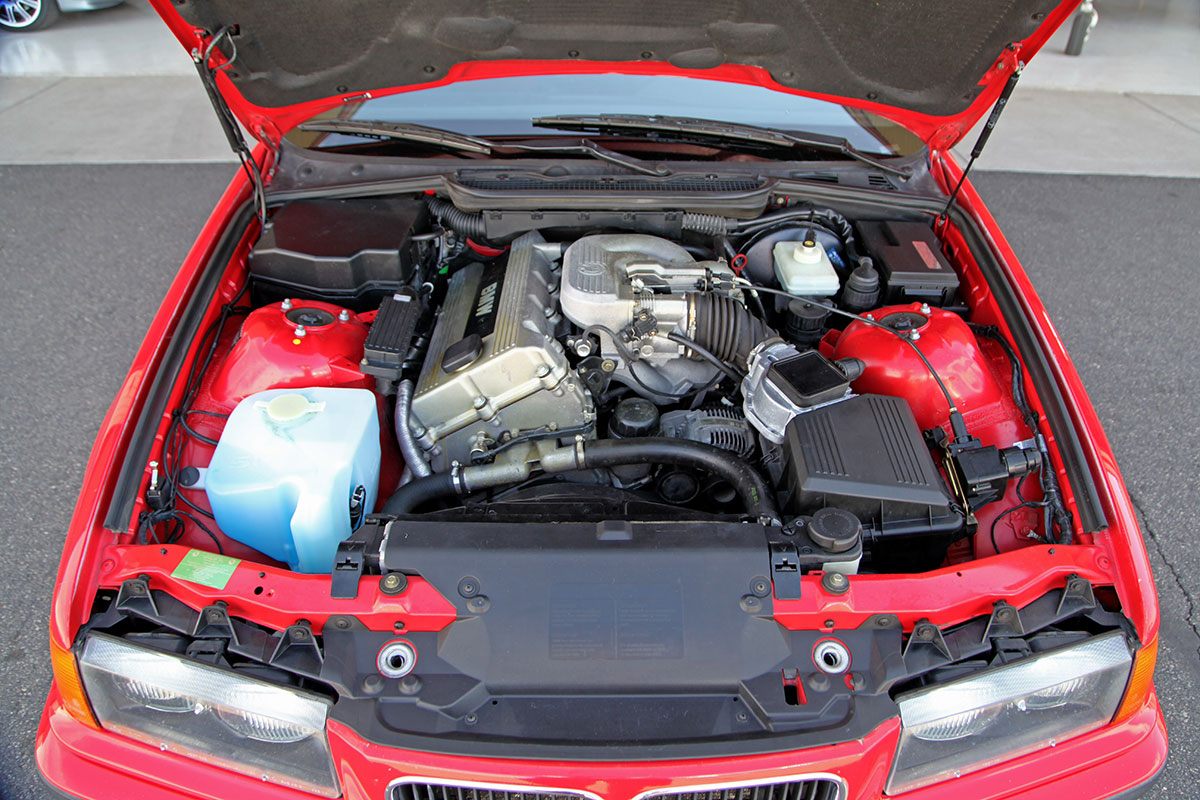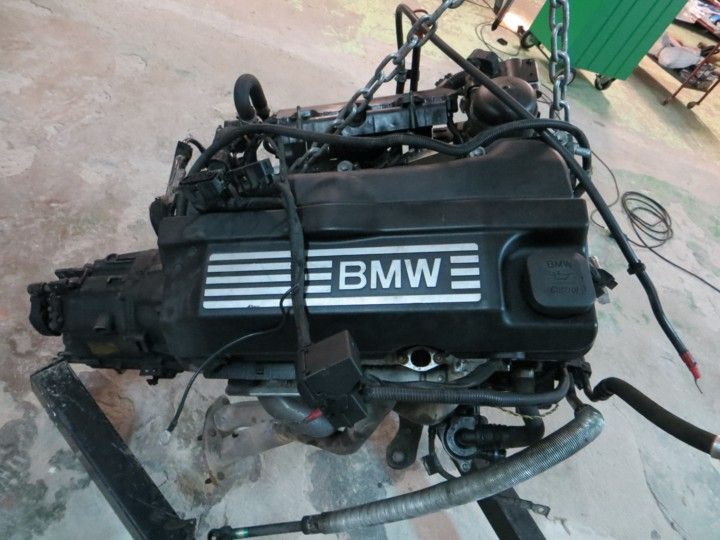BMW 318ti: A Comprehensive Overview to This Compact Powerhouse
BMW 318ti: A Comprehensive Overview to This Compact Powerhouse
Blog Article
Key Attributes to Seek When Buying an Engine for Automotive Applications
When thinking about the purchase of an engine for auto applications, numerous vital attributes call for mindful assessment to guarantee optimal performance and functionality. From power and efficiency capacities to sustain performance, adherence, and toughness to exhausts requirements, each aspect plays a vital duty in establishing the engine's suitability for specific automotive demands. Cost-effectiveness remains a critical aspect in the decision-making procedure, balancing high quality with monetary factors to consider. These features collectively add to the overall performance and integrity of the engine, affecting the driving experience and long-term complete satisfaction of the customer.
Power and Efficiency
When choosing an auto engine, buyers focus on power and efficiency to make certain optimum driving experience and efficiency. The power output of an engine, typically measured in horsepower (HP) or kilowatts (kW), determines the velocity, leading rate, and total capacities of a car. Greater power ratings normally lead to quicker velocity and better performance, particularly during overtaking or carrying hefty tons. Performance, on the other hand, encompasses a broader range of characteristics, including fuel efficiency, exhausts, integrity, and total driving characteristics. A well-performing engine not only provides power efficiently yet likewise operates efficiently across different speed ranges and driving conditions.
Buyers usually take into consideration the engine's torque result together with its power ranking. Torque, determined in pound-feet (lb-ft) or Newton-meters (Nm), mirrors the engine's rotational pressure, influencing the lorry's capability to tow, climb inclines, and accelerate from standstill. A balance between power and torque is critical for attaining a functional and receptive driving experience. In addition, variables such as engine turbocharging, crossbreed, and displacement technologies play considerable duties in enhancing both power and efficiency levels. Ultimately, picking an engine that offers a potent combination of power and performance guarantees a gratifying and effective driving experience. bmw 318ti.
Gas Performance
Enhancing gas effectiveness is a critical consideration for consumers when reviewing vehicle engine options. The effectiveness of an engine directly influences operating costs and environmental footprint. One key element affecting fuel effectiveness is the engine's layout and modern technology. Modern engines with functions like straight fuel injection, turbocharging, and variable shutoff timing can significantly improve gas effectiveness by improving combustion processes and lowering energy loss. In addition, the general weight of the engine and vehicle, as well as the aerodynamics, play crucial functions in identifying gas intake.

Durability and Reliability
Attaining long-lasting efficiency and dependable operation is essential for customers assessing the sturdiness and integrity of auto engines. When thinking about an engine for automobile applications, sturdiness refers to the engine's capability to hold up against wear, stress, and rough operating problems over an extensive period. Integrity, on the various other hand, indicates that the engine can continually do its designated function without unanticipated break downs or failures.
Customers should search for engines created with top notch products and precise design to make sure longevity. Elements such as crankshafts, bearings, and pistons should be sturdy to deal with the engine's power output without premature wear. Additionally, engines furnished with advanced cooling systems, reliable lubrication, and durable filtering mechanisms often tend to show greater degrees of dependability.
Normal upkeep and adherence to supplier referrals are also crucial consider maintaining an engine's resilience and reliability. By adhering to upkeep schedules, utilizing recommended fluids, and addressing any kind of problems without delay, customers can make the most of the lifespan and efficiency of their auto engines. Eventually, focusing on sturdiness and integrity in engine selection can cause an extra enjoyable possession experience with less unanticipated disruptions.
Discharges Conformity
Ensuring conformity with emissions policies is a critical aspect of reviewing automotive engines for environmentally mindful consumers. With increasing issues about air top quality and ecological effect, stringent exhausts requirements have actually been established internationally to reduce dangerous toxins released right into the ambience. When buying an engine for vehicle applications, it is vital to consider its exhausts conformity to lessen the carbon footprint and stick to legal needs.
Modern engines are outfitted with sophisticated exhaust control innovations such as catalytic converters, exhaust gas recirculation (EGR) systems, and careful catalytic reduction (SCR) to reduce damaging exhaust gases like nitrogen oxides (NOx), carbon monoxide gas (CARBON MONOXIDE), and hydrocarbons (HC) These systems play a critical function in guaranteeing that the engine satisfies the defined emissions requirements and runs within permitted limitations.

Cost-effectiveness
When taking into consideration auto engine acquisitions, evaluating cost-effectiveness is extremely important for customers looking for both efficiency and worth. Cost-effectiveness in engine acquisition entails more than just the initial acquisition rate. It incorporates the general expenditures associated with upkeep, gas consumption, and prospective repair work over the engine's lifespan. Selecting an engine that provides an equilibrium between long-lasting cost savings and ahead of time prices can result in considerable advantages for the consumer.
One trick aspect of cost-effectiveness is fuel effectiveness. Engines that are created to make best use of gas economy can lead to significant financial savings in time, specifically for individuals who drive frequently or over cross countries. Furthermore, thinking about the accessibility and affordability of spare components and maintenance can add to the general cost-effectiveness of an engine. Guaranteeing that maintenance and repair work are accessible and affordable can avoid unexpected monetary worries down the line.

Verdict
To conclude, when purchasing an engine for automobile applications, it is crucial to think about vital features such as power and performance, fuel reliability, efficiency and durability, emissions conformity, and cost-effectiveness. These aspects are crucial in ensuring that the engine fulfills the requirements of the car and operates successfully in different driving conditions - bmw 318ti. Making an informed decision based upon these standards will inevitably cause a reliable and effective vehicle engine acquisition
From power and efficiency capabilities to fuel longevity, performance, and adherence to emissions requirements, each aspect plays a critical function top article in determining the engine's viability for details vehicle needs. Engines designed to run on different fuels such as electric power, hybrid systems, or biofuels can supply improved fuel economy and reduced emissions compared to conventional fuel or diesel engines. Consumers ought to thoroughly my review here consider the gas effectiveness rankings and technologies integrated right into automobile engines to make informed purchasing choices that straighten with their priorities for expense financial savings and sustainability.
When taking into consideration an engine for vehicle applications, resilience refers to the engine's capability to hold up against wear, stress and anxiety, and severe operating conditions over an extensive period.In final thought, when purchasing an engine for automobile applications, it is vital to think about key attributes such as power and performance, fuel toughness, integrity and performance, discharges conformity, and cost-effectiveness.
Report this page